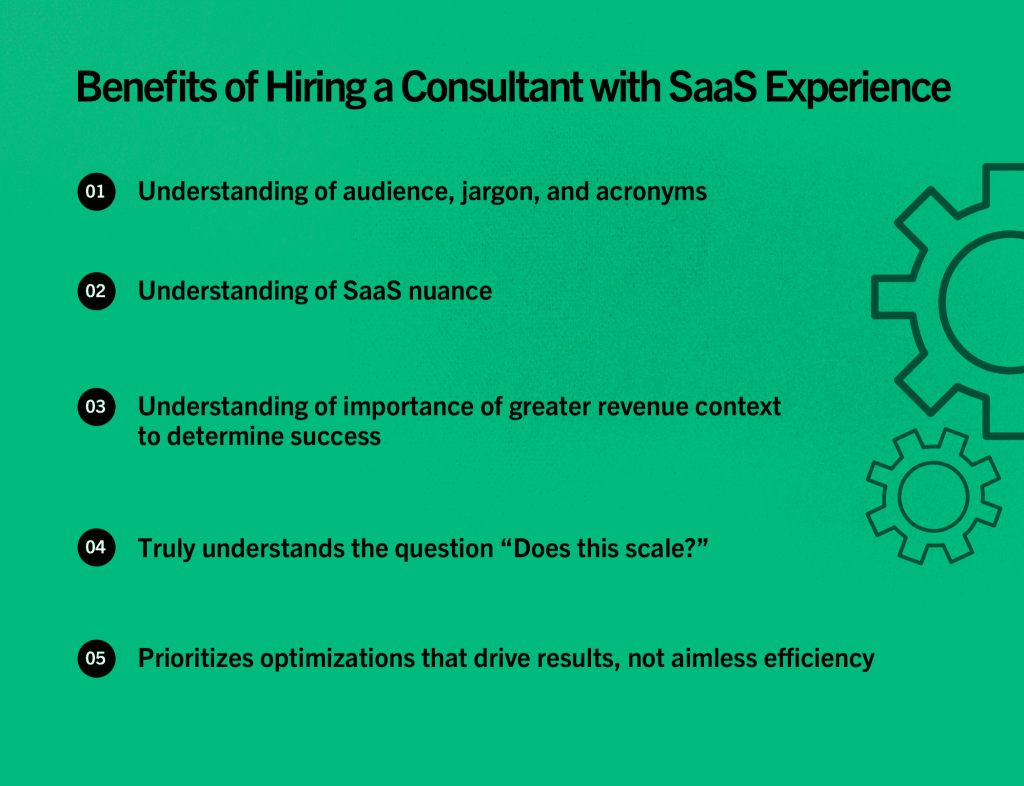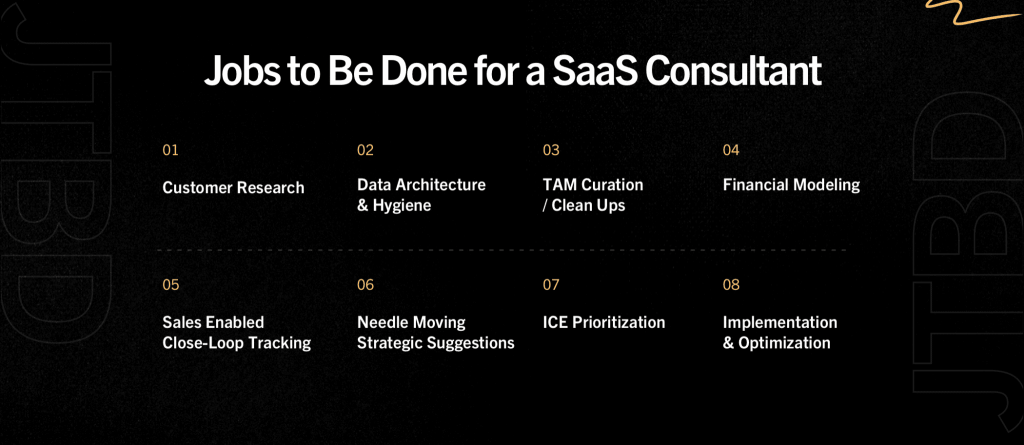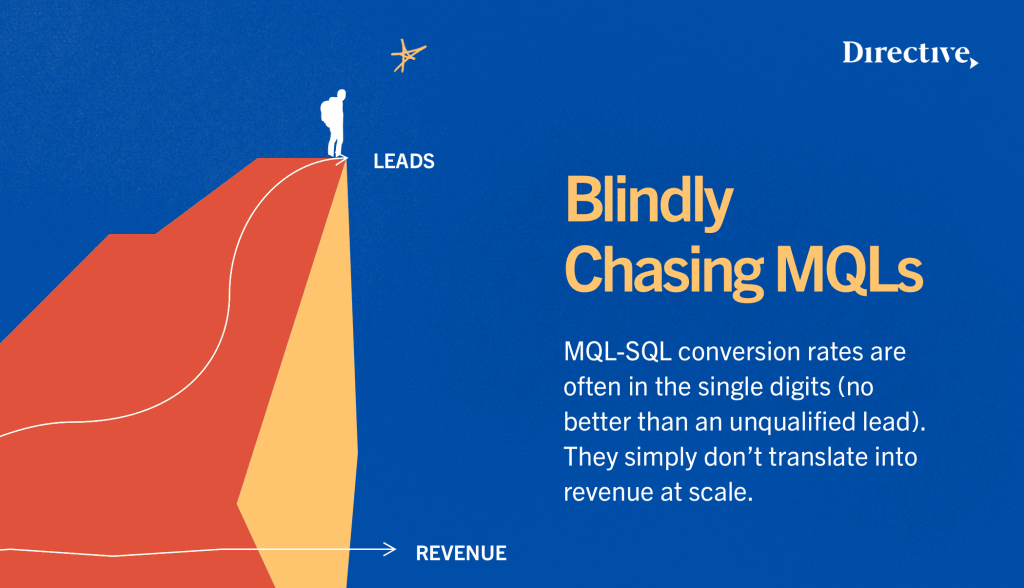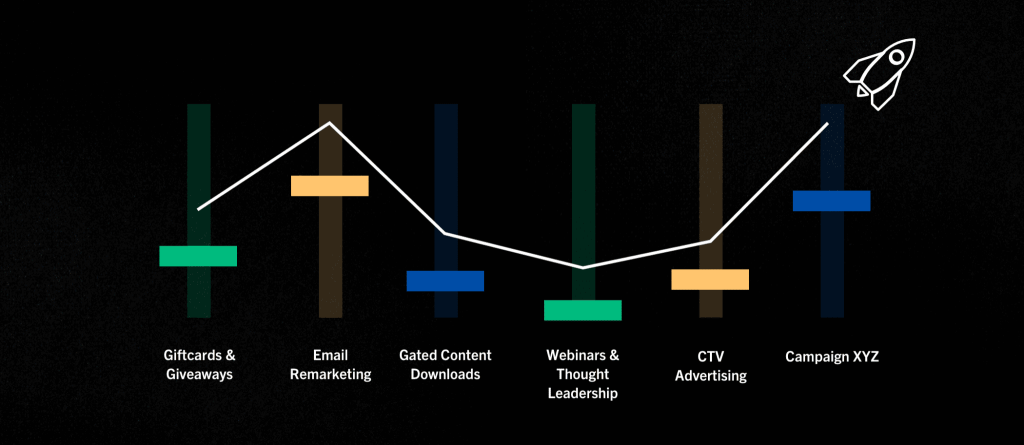It seems like these days there’s a consultant for just about anything and everything. In general, management consultants still hold the lion’s share in the consulting space.
And within this space, the big three firms – McKinsey, BCG, and Bain – have managed to grow and maintain their brand dominance for quite some time. However, tech savvy startups that have been able to restructure their methodologies to better serve their specific audiences are poised to disrupt a 60-year-old industry.
“A lot of the value that traditional management consultants have offered their clients has been similarly disrupted by technology. Every day, the tools that companies can use to form their strategy get better and more advanced. And every day, consulting firms need to prove that they can be relevant in this new world — and not simply the prestige name.”
With a technologically-driven disruption, it’s no surprise that the properly aligned SaaS consultant is one of those companies poised for success.
Either out of fear or curiosity, you might find yourself asking yourself what SaaS consulting is, exactly.
SaaS consultants are experts in Software as a Service who can translate their expertise into advice that SaaS businesses can leverage and implement. Now, there are several types of SaaS consultants in today’s age of specialization (as we mentioned earlier). SaaS consultants can specialize in financial consulting, sales and marketing consulting respectively, and can even specialize in SaaS product consulting or business consulting in general.
However, if you’re looking for outside consulting help in order to grow you business and brand, what you’re looking for is a SaaS consultant who specializes in growth.
This type of SaaS Consulting is the practice of wide-scale business optimization for SaaS companies through financial modeling, strategic prioritization, and marketing-sales alignment. When focusing on growth, it gives SaaS agencies the power to effectively generate new customers at scale instead of growing legacy metrics.
SaaS consultants in particular are able to financially model and scale SaaS businesses so effectively because they’re helping grow a Software as a Service, not just a service.
This isn’t to say that service driven businesses can’t be scaled. SaaS consultants can focus on the B2B or B2C space. However, the bulk of SaaS offers internet or software based tools used for large scale business purposes.
Being able to lean into the product side of marketing and sales makes the numbers game that much more tangible. Which, in turn, allows properly aligned SaaS consultants to prioritize strategies/shifts with a calculated confidence that most consultants simply can’t match. And in large scale B2B campaigns, this type of closed-loop tracking is vital to successful strategizing.
How Is SaaS Consulting Different From Traditional Consulting?
Let’s take a moment to consider how a SaaS consultant does things differently than a traditional consulting firm, especially with it comes to growth and marketing. (Why else are we here, after all?)
Modern day marketing consulting often focuses on driving leads from brand touches and value exchanges in a condensed funnel. SaaS consulting, on the other hand, accounts for the extended customer lifecycle of today’s SaaS buyers.
A traditional consultant might advise on how to improve business in general. Likewise, a software consultant would build actual software to optimize performance.
In the middle ground, SaaS Consultants identify and prioritize optimizations based on extended LTV calculations of the client’s target market. They help identify which softwares, systems, and strategies are helping grow the business and which are hurting it.
That sounds complex. So let’s take a moment to boil it down into 5 quick steps that you’ll likely run through when working with a SaaS consultant.
Saturation
Your ideal SaaS buyer today is constantly bombarded with different softwares/tools to “optimize their business.”
Vanity
Traditional consultants help maximize visibility for their clients to increase leads that (hopefully) translate to sales.
Insight
You (or your consultant) realize that your software/service isn’t for everyone, and marketing to everyone is akin to lighting your budget on fire.
Value
Instead, you focus on the LTV (lifetime value) of customers and their CAC (customer acquisition cost) in order to identify/prioritize channels that drive real growth.
Confidence
Strategies can be prioritized based on LTV:CAC and metrics can align sales and marketing properly to help grow the actual business as a whole, instead of just growing a lead list.
In this way, SaaS consultants are able to revolutionize the impact that they can bring to their clients. From strategy to system through implementation, when properly targeting customer generation, a SaaS consultant can truly revolutionize your business.
Why SaaS Consulting Is Imperative For SaaS Brands
Partnering with a SaaS consultant – and one that can properly identify the right levers to pull and which to pause – can finally give you the alignment your business has been craving. But the ability to truly identify those levers makes all the difference. Relying on traditional consulting firms and legacy demand gen metrics isn’t just leaving money on the table – it’s actually costing you customers and revenue.
By aligning different business subsystems like sales, marketing, etc, towards a singular metric – customers – SaaS consultants can give clarity and direction to their strategies where demand gen agencies fall short. On top of that, their understanding of the unique business model that SaaS brands operate on allows for a much more tailored strategy. 
But now that you know the benefits of finding a SaaS consultant to work with, you’ll surely be wondering what it is they do on the day-to-day.
What Does A SaaS Consultant Do?
What’s typically missing from the traditional consultant framework is a sense of cohesion across marketing and sales channels. Now, a SaaS consultant isn’t locked into handling growth optimization.
“A SaaS consultant at their core is a systems mastermind who understands the bigger picture and can implement effective strategies that increase effectiveness and efficiency, in that order.“
However, it goes without saying that if they want to help grow your brand, no SaaS consultant worth their salt is going to ignore the actual growth-driving systems: marketing and sales.
What limits traditional consultants is that they can try to optimize sales close rates, or they can try to optimize lead generation from marketing. But they can’t seem to tie the two together.
SaaS consultants’ unique vantage point into the extended lifecycle of the average software buyer allows them to make each part of their work cohesive throughout the business organization.

You can see how the Jobs-To-Be-Done chart above shows the never ending emphasis on customer research. That’s because the backbone of any truly powerful consultant is their understanding of their clients’ audience.
“SaaS consultants stand in a unique meta-position of often being consumers and salesmen of similar softwares. This gives them an in-depth understanding into the SaaS industry that third-party consultants will never be able to match.”
How To Find The Best SaaS Consultant For Your Business
There are a few things you need to ask yourself before choosing to partner with a SaaS consultant. Oddly enough, many of them overlap with questions you end up asking yourself when wondering whether to break up with your demand gen agency.
What a curious connection…

As you can see from the checklist above, the bulk of the questions/redflags point towards a common theme. You’re looking to drive trackable, scalable growth, as opposed to boosting metrics that don’t lead to change.
If this is a pain point that resonates with you, there’s something you might want to read…
Join Society: The Exclusive Home Of Customer Generation
What you want in a SaaS consultant is a partner who can identify strategies that will drive new customers and revenue for your business. You don’t want another lead list or another channel through which you can hopefully attribute retroactive value.
A true consultant comes in and should revolutionize your business (should it need revolutionizing). And guess what, if you’re still running on demand gen legacy metrics, you’re in need for a revolution indeed.
When it comes to actually sourcing your SaaS consultant, it’s no surprise that looking at the actual growth generated from their work (as opposed to performance stats) is a great place to start. What does this mean? It means you might want to avoid the website and go straight to the case studies.
You want to read the stories of how they were able to actually change businesses for the better. Businesses. Not Campaigns.
Then you can start to dive into your pricing comparisons.
Why Traditional SaaS Consultants Can Sometimes Struggle
So what’s a common road bump that consultants (and SaaS consultants especially) can often run into?
Simple – saturation.
The market is saturated with different B2B brands and different software tools meant to help optimize their businesses. But as we mentioned earlier in the post, your software isn’t for everyone (despite what your Product Team may tell you).
The wide-spread approach that comes from ignoring this fundamental fact of SaaS leads to the number #1 problem currently plaguing SaaS campaigns across the board: the MQL.
The MQL – or marketing qualified lead – is the misguided metric of demand generation and traditional marketing consultants alike that leads so many SaaS brands astray.

Many Demand Generation agencies and consultants these days have fallen victim to the empty promise of MQLs.
What is that promise exactly? To solve the problem of aimless performance of Growth Marketing with strategies and metrics that point directly towards growth.
On the other hand, more customer-led strategies properly align your financial modeling, goal setting, and strategic pivots towards generating more customers. Not clicks, not conversions, not engagements, impressions, or demand – but actual customers.
Should I Break Up With My Demand Gen Agency?
Truly valuable partners and consultants aren’t interested in boosting vanity metrics in order to boost their bottom line (and egos). What they really want – what we really want – is to help tangibly grow your business.
A truly candid SaaS consultant’s strategies will reflect that urgency with priorities that value growth and not aimless efficiency.
The New Standard: Customer-Led SaaS Consulting
The old methodologies of Growth Marketing and Demand Generation that traditional consultant firms used to rely on simply miss the bigger picture. A consultant isn’t meant to aimlessly increase the efficiency of a business without actually driving growth.
Properly aligned SaaS consultants do just that. And with their advanced financial modeling and data architecture, they’ve acquired a superpower that most digital marketers have only ever dreamt of scaling with confidence.

At the end of the day, you should be making more money from a consultant partnership than you should be spending on the partnership itself. If this is even a remote question or calculation in your mind, you have some serious decisions to make.
If you’re interested in learning more about what questions you should be asking your consultant, or if you’re interested in seeing what demand generation forgot about, feel free to get in touch.
Should I Break Up With My Demand Gen Agency?